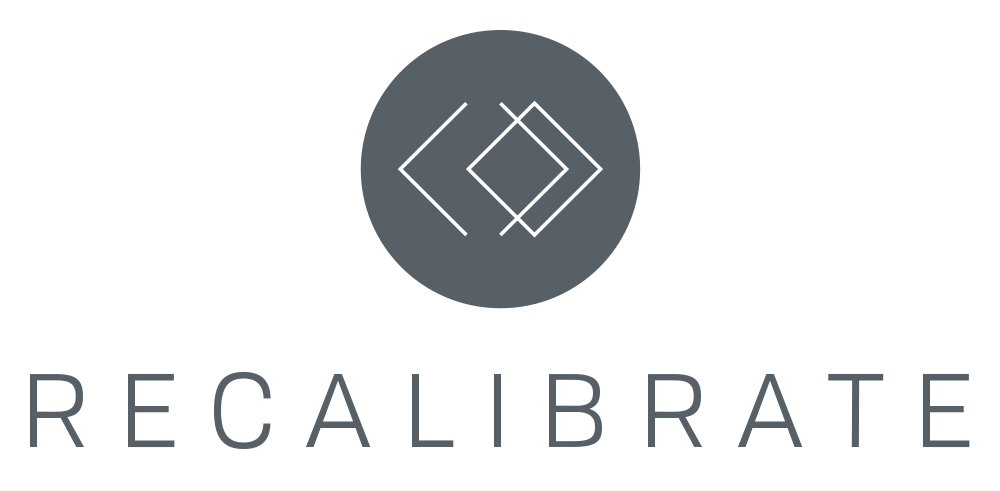FAQs
what is neurowellness™?
Neurowellness™ describes the all-encompassing health of the nervous system — the central nervous system comprising of the brain and spinal cord, and the peripheral nervous system comprising of all neural pathways that connect the body to the brain.
Stress, anxiety, thoughts, and emotions are experiences we all share as humans because they are all biochemical and biophysical functions rooted in our nervous systems. At Recalibrate, we don’t dilute the magnitude of these functions. All our recommendations and resources are rooted in proven principles of neuroscience and biology to help improve everybody’s knowledge and mental and physical health.
Forget the Mad Men era curmudgeons who still cling to stigmatizing stress and anxiety. We say time to drop the curmudgeons and use science to LIVE BETTER, people.
can anyone meditate?
Sure can. In fact, we guarantee it with any of our Intro to Mindfulness education and private coaching classes. No downside here, friends.
what if my mind never quiets?
First, you’re not alone.
Second, there is a misconception that meditation is always about ceasing all thought. A calm mind is an eventual goal, but the practice of mindfulness is more about being aware of what’s actually there for you right here, right now — and not pretending things are a calm quiet stream if they’re not actually that way.
Third, meditation is just a word for mental training — exercise for the brain. Nobody taught us to exercise our brains in this way growing up, so of course it’s going to be difficult at first to just sit down and start flexing mental muscles that haven’t been trained before. Meditation is about pattern interruption, learning new skills, and training to gain greater mental clarity, focus, wellness, and strength. We can show you how, and we feel privileged to be able to do so.
my work makes me way too busy to learn how to meditate.
Firstly, see answer to “can anyone meditate” above.
Secondly, hi hi, this is Recalibrate’s founder, Gloria. If you haven’t read my story already, let me start with: I totally relate to you because I used to be a giant skeptic. Once upon a time, I was a management consultant sitting on a plane listening to Headspace, rolling my eyes and strongly doubting how a breathing exercising would help me be less sleep deprived from working until midnight and waking up at 3:30a to be on a plane by 5:00a, or how it would help me be less stressed about the upcoming Fortune 100 client pitch I had to lead with a full-blown migraine in tow. And so, after a few (in retrospect, halfass) attempts I wrote meditation off as a luxury suited only for people without demanding jobs (butthead thought, I know!). Then, my migraines caught up with me, after my pummeling my body into the ground from decades of overwork — and so, I gave meditation another chance and started working with a one-on-one mindfulness coach (hi, Peter!) who explained the science behind meditation. Then, I did hours of geeky neuroscience research on my own to validate everything happening in my body, and I learned about all the misconceptions about meditation, and things started clicking for me.
I stand by the belief that in certain situations, you need an understanding of scientific benefit before you can access a new behavior or habit. I recognize there are few resources that talk about mindfulness and meditation in a science-based, applicable way — so that’s why I quit my job and am here now — to help intelligent, high-achieving, hardworking people like you to take better care of yourselves (without you having to do something wild like quit your job or become a monk). I know it might not feel like it, but I give you my word that with our help, it can be done.
PS - if my story doesn’t compel you and you’re still like, “Nah, I’m too busy,” then try the stories of famed meditation advocates such as Oprah, and Steve Jobs, Phil Jackson, and Ariana Huffington.
y’all talk about science and research a lot. which research organizations do you cite?
Among the most well renowned organizations from which we incorporate published research are:
…and the list will continue to grow. We will always seek the latest and highest standard of published research to better you.

